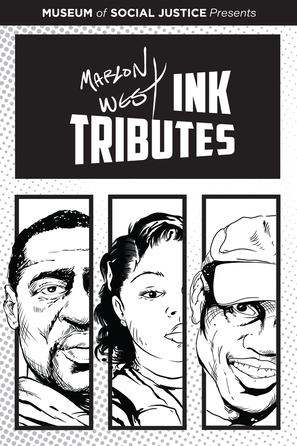0 Comments
Museum of Social Justice: Joseph Silva: Deported Veterans ANDY ROMANOFF, L'ŒIL DE LA PHOTOGRAPHIE MAY 2, 2022 Los Angeles is a big city, five hundred square miles of endless neighborhoods seemingly without a center. Fifty years ago, new in town, I struggled to grasp this gigantic place without much success. One night I was telling this to a friend when he gave me a thought I still hold on to. The heart of Los Angeles, he told me, is a little plaza near downtown called El Pueblo de Los Angeles. It dates back to the earliest settlers and everything else is newer and radiates out from it. “Go and stand in the plaza,” he said, “close your eyes and you can feel the city all around you.” So I went, and stood with closed eyes and the feeling slowly grew in me that I was standing at the calm center of the city. There may have been drugs involved that night but for me ever since, Olvera Street and the plaza down at the end have been the heart of L.A. Sitting here still calms me and resets my senses.
The Museum of Social Justice is located on the edge of the plaza, in a small space down some stairs at the corner of a large building, the United Methodist Church. The museum calls attention to often overlooked issues and right now it is calling attention to the immigrants who served in the United States military, risked their lives to keep us safe, but then later run afoul of the law. Unprotected by citizenship they have been thrown out of the country they fought to protect. Joseph Silva is a U.S. Navy Veteran and a Documentary Fine Art Photographer. He spent six years exploring this story, traveling to Mexico, the Caribbean, Central America and Europe to photograph the veterans this country has turned away. The Soldier’s Creed: “You don’t leave your shipmate on the beach, leave no man behind” drove him to tell the story. In his personal statement about the work Silva says, “My journey started in the spring of 2016 while photographing Donald Trump protesters in downtown San Diego. I started to hear stories about deported veterans, so I sent a message to Hector Barajas, a US Army veteran deported to Tijuana, Mexico. I told him I wanted to cross the border to hear his story. A couple days later I took a Leica M4, M3, and a checked-out Canon 7D from the Santa 2/3 Monica College student newspaper. I met Hector at the BUNKER, the Deported Veterans Support House in Tijuana, Mexico. After arriving at the BUNKER and meeting Hector and fellow Veterans, I felt like I was at a VRC (veteran resource center) on a college campus shooting the shit …. I knew within 20 minutes after being in their presence that I had to tell their stories.” Silva’s work fills hundreds of rolls of film and multiple hard drives and the pictures on display here attest to his vision and his passion. But the story he tells is a complex one, one that the photographs alone cannot reveal, so each picture is accompanied by a short text that gives you a name and a glimpse into the person pictured. The combination of words and pictures tells a sobering story. Moving slowly in the quiet room, seeing them and learning little bits about these strangers, I found the pictures and text together illuminated their lives, and knowing their names brought them even closer. For the record, this exhibit is not a simple one-dimensional story. Some of these soldiers have adapted to life in their new countries and would be happy just to come once in a while and visit friends and family left behind; others want the birthright they believe they have earned, but all feel that something is fundamentally wrong with the way they have been treated. So once again, I found myself in the plaza at the at the heart of Los Angeles. This time I gained an understanding of a story I hadn’t thought about and saw an exhibition worth seeing. If you have the chance I suggest you come down here too. You can spend some time looking at Joseph Silva’s fine photos and then you can stand in the plaza at the center of Los Angeles, feel yourself in the middle of it all, and think for yourself about what ought to be done. Coretta Scott King |
EVENTS & NEWSCategories |
- Home
- About
- Board of Advisors
-
Exhibitions
- "Comfort Women" Then and Now: Who They Were and Why We Should Remember Them
- Future Exhibitions
-
Past Exhibitions
>
- Finding Sequins in the Rubble: Archives of Jotería Memories in Los Angeles
- La Plaza: A Center of Injustice and Transformation
- Ink Tributes
- Deported Veterans
- Caravanas del Diablo
- Thai El Monte Garment Workers >
- New Black City
- Impact on Innocence >
- One of Us: How We See It
- Transportapueblos: The Resilientes
- Visualizing the People's History
- Goodwill: Its Founding and History in Southern California
- Greyhound Diaries
- One of Us
- California Dream: A Community Response
- In Memoriam: Los Angeles
- Shattered Mural
- Con Safos: Reflections of Life in the Barrio
- African American Civil Rights Movement L.A. Exhibition
- Exodus
- Support/Membership
- Visit
- Supporters
- Educational Tools and Resources
- Historical Archive
- News & Events
- Allyship and Support
- Tardeada 2022
- Tardeada 2021
- Tardeada 2020
- Contact



 RSS Feed
RSS Feed